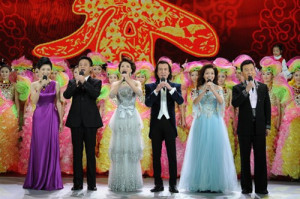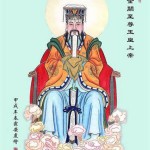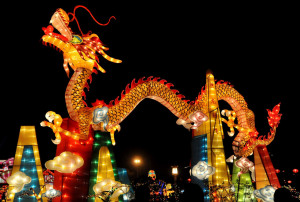#62 When are those fireworks again? The CNY run down, day-by-day
 If you’ve spent time in China or in Chinese communities over Spring Festival then you’ll know – it’s undeniably a time filled with tradition and the excitement and anticipation of visits home and time spent with relatives is almost tangible. For years, I never knew what all the hubbub was about. I didn’t have any emotional reaction to CNY like I do with, say, Thanksgiving or Christmas. By taking book knowledge and coupling it with some fantastic real-life experiences in many Chinese homes, I’ve been awakened to the mystery and beauty of CNY and I believe having even a basic understanding of this topic really gives great insight into not only what to expect from our end as ‘laowai’ but it also helps us see why this holiday is so important to the Chinese people that we know and love.
If you’ve spent time in China or in Chinese communities over Spring Festival then you’ll know – it’s undeniably a time filled with tradition and the excitement and anticipation of visits home and time spent with relatives is almost tangible. For years, I never knew what all the hubbub was about. I didn’t have any emotional reaction to CNY like I do with, say, Thanksgiving or Christmas. By taking book knowledge and coupling it with some fantastic real-life experiences in many Chinese homes, I’ve been awakened to the mystery and beauty of CNY and I believe having even a basic understanding of this topic really gives great insight into not only what to expect from our end as ‘laowai’ but it also helps us see why this holiday is so important to the Chinese people that we know and love.
It is believed that cleaning sweeps away the bad luck of the preceding year and makes homes ready for good luck.
Show Notes
Laba Jie
Laba Jie (‘jie’ meaning festival) falls on the eighth day of the lunar month prior to Chinese New Year, so you can kind of think of it as December 8th in our calendar. On this day, a traditional porridge, called Laba porridge, is served on that day in remembrance of an ancient festival, called La, that happened shortly after the winter solstice. Traditionally, the porridge was prepared by the women of the household early, early in the morning, and they always offered the first bowl to the family’s ancestors and the household deities. After that, each member of the family was then served their bowl, and if there were any leftovers then relatives and friends could have their share as well. Today, in some homes, it’s still served as a special breakfast on Laba Jie, I’ve had it and it’s delicious if you’re a porridge kind of person. Additionally, there’s another significance of this holiday: the concept of the ‘La month’ (La, coming from ‘Laba’) is similar to Advent in Christianity. Advent leads up to Christmas Day with the birth of Jesus the Savior; and the month of La leads up to the CNY festivities where all things are made fresh and new once again.
From Laba Jie to CNY Eve
So the time from Laba Jie up to CNY lots and lots of hustle happens in Chinese communities. First you can expect lots of cleaning and freshening up going on in traditional households. It is believed that cleaning sweeps away the bad luck of the preceding year and makes homes ready for good luck. Sometimes, brooms and dust pans are even put away on the first day so that the newly arrived good luck cannot be swept away. We talked in the first episode how red couplets and auspicious characters and sayings are pasted up around the home and outside of the door.
Traditionally, when the general economy in China wasn’t as great as it is today, CNY was the time of year that parents would purchase new clothes and shoes for the family. Which of course was a big deal! Today, while this is important still for some, many now have the funds all year round to accommodate the need for new things as they arise. In the time leading up to the New Year, many will get a fresh haircut and go to the hot springs for a deep bath as well. It’s lucky to finish off business deals and pay out your debts before the new year to begin the next year with favor and ensuring prosperity in your work.
Often the most anticipated event of the year, corporate New Year’s banquets take place at the end of the year before the holiday break too, and coworkers let down their hair for some wacky displays of CNY cheer. Lucky draws, karaoke performances, comedy and dance routines, lion dances, professional performances, over-eating and drinking, you name it, it happens at these annual events. And don’t forget the shopping sprees for all the gifts that will be exchanged between colleagues, friends and family in the first two weeks of the New Year. Just head to Carrefour any day of the week if you want to get a taste of the action and activity that goes on around the purchase of gifts!
CNY Eve Dinner
So gifts are bought, you’ve got a new hair-do, new clothes, you’re still steaming from the hot springs and it’s time for Reunion Dinner on CNY Eve! All around China there are loads of different must-haves at this important meal – be it fish, dumplings, glutinous new year cake, or noodles but each family will have their own special traditions. The most important thing is that everyone is together for the meal. After dinner, some families may head down to the local temple to pray for a prosperous new year and light the first incense of the year; yet, many families spend new year’s even like many in the west – with a lively party with friends and family and a countdown to the New Year. I’d say most Chinese families will tune in at some point to CCTV’s New Year’s Gala broadcast four hours before the start of the New Year.
New Year’s Day
At the stroke of midnight, be prepared for some serious noise! We learned before that fireworks traditionally were used to chase off the mythical beast called ‘Nian’ and now in modern China this tradition of setting off fireworks at midnight is still very much alive and well! For many, it still signifies scaring off evil spirits and ushering in luck and prosperity in the year to come.
Day 2
Day two of the New Year is a special day when married daughters get to visit their birth parents, relatives and close friends. Traditionally, married daughters didn’t have this chance often because when a woman married a man, she really married into his family and it was almost like her birth parents lost a daughter (which ties in to why girl babies weren’t preferred for many generations). But on Day 2, families are reunited with a visit and I’m sure a delicious meal.
Day 3
On Day 3, it’s considered unlucky to have guests or go visiting to another’s home but it’s not a day void of activity necessarily. Rural villagers continue the tradition of burning paper offerings over trash fires and this extends into the city as well. This is also considered a lucky day to visit the temple of the god of wealth and have your fortune told.
Day 5
Day 5 is the god of wealth’s birthday and is definitely a big firework day so be prepared at midnight!
Day 7
The seventh day is the day when everyone grows one year older together. So, happy birthday! Regardless of when your actual birthday might fall within the year, you gain a year on this day. Many Chinese calculate their age based on this Lunar calendar system.
Day 8
On the eve of the birth of the Jade Emperor, who is considered the ruler of heaven, and celebrates his birthday on Day 9, another important family dinner is held. People normally return to work by the eighth day actually and if it didn’t happen before CNY, some store owners may host a meal with their employees, thanking them for the work they have done for the whole year.
Day 15
The fifteenth day of the New Year marks the end of the Spring Festival season and is celebrated as either “Yuanxiao Festival” or the Lantern Festival. Rice dumplings called tangyuan, which are these sweet glutinous rice balls, stuffed with filling and boiled in a soup, are eaten on the 15th. They’re definitely something to try if you haven’t yet. In many cities, you’ll be able to find a Lantern Festival to visit and it’s also worth a trip to see the handy-work of CNY artisans.
Blessings for the year ahead
There you have it! From three weeks before Chinese New Year, to two weeks after, most Chinese spend a good deal of their time preparing, shopping, traveling, cooking, cleaning and visiting. Even though the vast majority of expats in our neck of the woods head out of China to spend the holiday with family, the hustle and bustle of China at this time of year excites and energizes me. While the Chinese are out doing their thing, my family is hunkering down for some quality time spent with our own circle of family and friends who remain behind to ring in our second new year of 2015. May your Year of the Sheep be filled with peace, health and blessing.





